
ICOS coordinates and participates in European and global projects that advance current and future science, facilitate technological developments and inform climate policy.
ICOS-coordinated projects
Currently, ICOS ERIC is coordinating four projects: GEORGE, ICOS Cities, KADI and NUBICOS. Read more about the projects below.
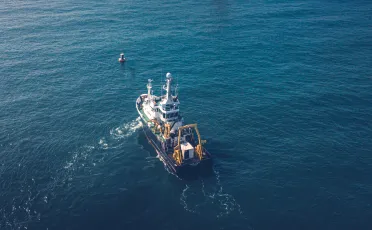
GEORGE is a Horizon Europe-funded project that develops novel
technologies to improve ocean observations. The technologies developed
will represent the next level in systematic long-term autonomous ocean
observations
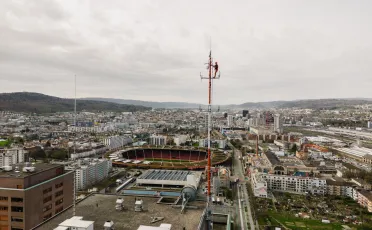
ICOS Cities brings together European citizens, policy makers and top scientists in co-designing pioneer greenhouse gas measurement methodologies and services for cities to support climate action.
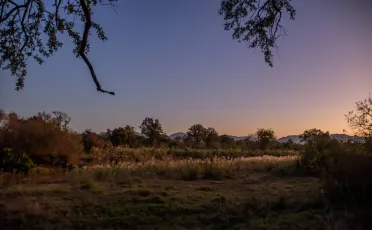
Knowledge and climate services from an African observation and Data research Infrastructure (KADI) aims to provide concepts for developing the best available science and science-based services in Africa.
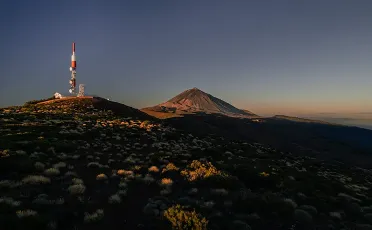
NUBICOS is improving ICOS observational data and products for better science and actionable policy. Through improved staff training and engagement, NUBICOS is consolidating the existing and future ICOS community.
ICOS is a partner in:
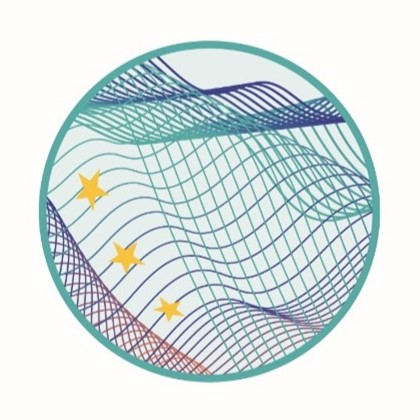 AMRIT(2024-2028)
AMRIT(2024-2028)
AMRIT is a Horizon Europe-funded project aimed at strengthening marine research infrastructures across Europe. It integrates key services to support the European Ocean Observing System (EOOS) and fosters collaboration among marine researchers, platform operators, and policymakers.
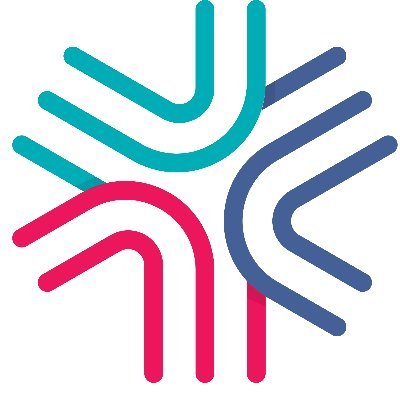
ATMO-ACCESS (2021-2025)
ATMO-ACCESS provides physical, virtual and remote access services to more than 50 atmospheric facilities’ data and instruments worldwide through periodic calls.
These opportunities are open to scientists, students, companies, public authorities in the atmospheric field and beyond.
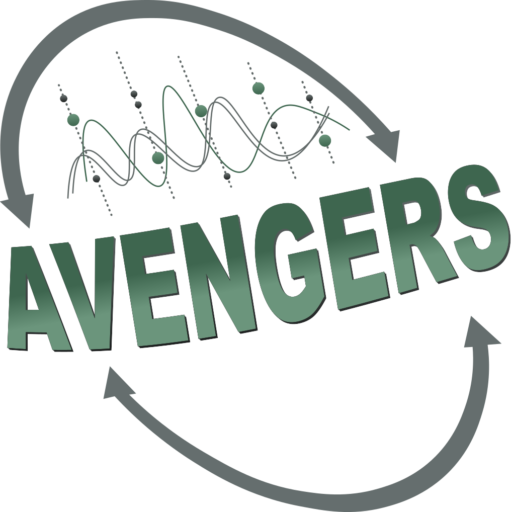
AVENGERS(2023-2026)
AVENGERS is a Research and Innovation project funded under the Horizon Europe programme of the European Union. The project was funded under the call on “Climate sciences and responses (HORIZON-CL5-2022-D1-02)”.

ENVRI-Hub NEXT (2024-2027)
Researchers face challenges in accessing and analysing the wealth of environmental data scattered across numerous sources. ENVRI-Hub NEXT bridges this gap, offering a user-friendly platform for seamless access to data from environmental Research Infrastructures, fostering interdisciplinary research and driving breakthroughs in environmental science.
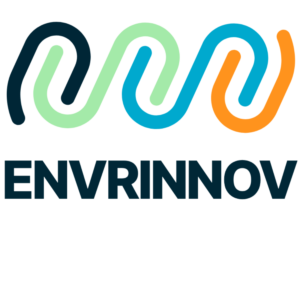 ENVRINNOV (2024-2027)
ENVRINNOV (2024-2027)
ENVRINNOV will co-design, test, and validate a common Innovation Roadmap for the ENVRI community. This Roadmap will set a credible pathway for the ENVRI community to establish and operate an ENVRI Innovation Hub (EIH), for the future development of new state-of-the-art technologies and services.
 ERIC Forum 2 (2023-2027)
ERIC Forum 2 (2023-2027)
This project aims to structure the cooperation between ERICs, support the implementation of the ERIC Regulation and ERICs services, and consolidate the integration of the ERICs in the European Research Area by deepening the ERIC Forum’s contribution to research policies.
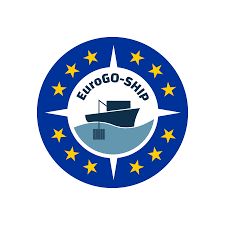 EuroGOSHIP (2022-2025)
EuroGOSHIP (2022-2025)
The EuroGO-SHIP project seeks to enable the European community conducting hydrographic observations at sea to provide higher quality and more sustainable data flows to a broad range of end users, more effectively.
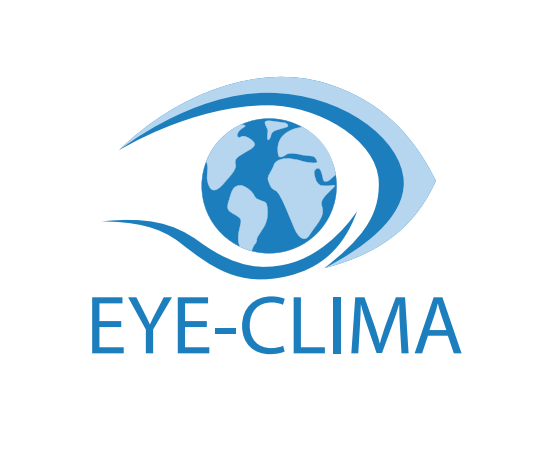 EYE-CLIMA (2023-2026)
EYE-CLIMA (2023-2026)
EYE-CLIMA aims to improve estimates of emissions and removals of the most important greenhouse gases (CO2, CH4, N2O and six F-gases), as well as black carbon, to support European and international policy to reduce emissions.
IRISCC (2024-2028)
Climate change presents a complex existential threat, demanding a unified and comprehensive response. IRISCC recognises this urgency and acts as a collaborative force, bringing together the expertise and resources of numerous Research Infrastructures.
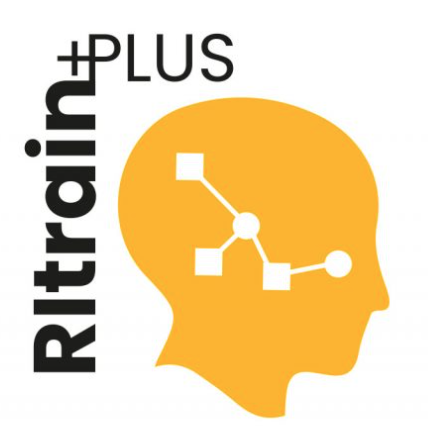
RItrainPlus (2021-2025)
This Project brings together, for the first time, research infrastructures, core facilities, business management Schools and European universities, in a new innovative concept to transform the access and empowerment of human resources for national and international scientific facilities in Europe.
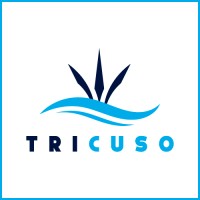 TRICUSO (2025-2028)
TRICUSO (2025-2028)
TRICUSO is a Horizon Europe science research project seeking to innovate every level of the Southern Ocean Carbon Value Chain.
Past projects
CHE (2017-2020)
The CO2 Human Emissions (CHE) EU H2020 project explored the development of a European system to monitor human activity related carbon dioxide (CO2) emissions across the world. Such capacity is vital to support Europe’s leading role in worldwide action to address climate change.
CoCO2 (2021-2023)
The EU Horizon 2020 project “Copernicus evolution – Research activities in support of a European operational monitoring support capacity for fossil fuel CO2 emissions” (CoCO2) continued the work of the “CO2 Human Emissions” (CHE) project. The main objective of the project was to perform Research and Development (R&D) activities identified as a need in the CHE project. The project sustained the development of a European capacity for monitoring human-caused (anthropogenic) carbon dioxide (CO2) emissions.
ICOS was in charge of the work package on Observations and contributed to several other work packages. The Observations work package further elaborated on the content of the EU’s “Green Report” to provide more detailed information on the in-situ requirements of the Copernicus anthropogenic CO2 emissions Monitoring and Verification Support (CO2MVS) versus current capabilities. The work package provided recommendations for the technical requirements for a data pipeline to connect the relevant data streams with the operational data assimilation system and implement a protype. Finally, ICOS investigated the potential new measurement techniques and instruments to fill current gaps.
Interested in studies of hot-spot detection of emissions? CoCO2 developed the "Hot spot emission detection studies" interactive map. You can access it here.
COOP+ (2016-2019)
COOP+ (Cooperation of Research Infrastructures to address global challenges in the environmental field) was an Horizon 2020 project whose general goal was to strengthen the links and coordination of the European RIs related to Marine Science (EMSO), Arctic and Atmospheric Research (EISCAT), Carbon Observation (ICOS) and Biodiversity (LifeWatch) with international counterparts (NEON, TERN, AMISR/SRI, CGSM, OOI, INPA/LBA, IMOS, OCN, AMERIFLUX, etc.) and to leverage international scientific cooperation and data exchange with non-EU countries.
ICOS, represented by University of Helsinki and Finnish Meteorological Institute, was active in several work packages addressing several important questions regarding RIs and their cooperation with US.
COOPEUS (2012-2015)
The project brought together the Europe’s major research infrastructures in environmental sciences; EISCAT, EPOS, LifeWATCH, EMSO, and ICOS, with parallel research infrastructure projects in the US; the NSF funded projects; AMISR, EARTHSCOPE, DataONE, OOI and NEON. The project developed measurements interoperability, reducing their uncertainty and stimulating future common EU-US research activities.
DANUBIUS-PP (2016-2019)
DANUBIUS-PP was an EU Horizon 2020 project to raise DANUBIUS-RI (the International Centre for Advanced Studies on River-Sea Systems) to the legal, financial and technical maturity required for successful implementation and development. ICOS ERIC contributed to project management and coordination, architecture, capacity building, as well as dissemination and communication work packages.
DICE (2021-2023)
The "Data Infrastructure Capacities for EOSC" (DICE) EU Horizon 2020 project brought together a network of computing and data centres, research infrastructures, and data repositories which proposed to enable a European storage and data management infrastructure for the European Open Science Cloud (EOSC), providing generic services and building blocks to store, find, access, and process data in a consistent and persistent way.
ICOS Carbon Portal contributed to the integration of DICE-offered data services, such as B2SAFE, B2ACCESS and B2FIND, with its community platforms and the community inversion benchmarking tool for atmospheric inversion of ICOS data to reduce uncertainties in greenhouse gas emission data.
ENVRI (2011-2014)
ENVRI was a project focusing on the implementation of common solutions for a cluster of ESFRI infrastructures in the field of "Environmental Sciences".
ICOS was participating the ENVRI as one case study. ENVRIplus which started in 2015, builded up on the ENVRI project.
ENVRI-FAIR (2019-2022)
ENVRI-FAIR was an EU Horizon 2020 project. Its overarching goal was for all participating ENVRI Research Infrastructures have built a set of FAIR (Findable, Accessible, Interoperable, Reusable) data services. FAIR principles enhance the efficiency and productivity of researchers, support innovation and connect the ENVRI Cluster to the European Open Science Cloud (EOSC). This enables data- and knowledge-based decisions to answer the challenges the Earth and our society are facing.
ICOS, represented by the ERIC and its several partner universities, coordinated project communications and community building activities, led development of community standards and service catalogue, coordinated the FAIR training activities, and co-led the implementation of ecosystem & biodiversity subdomain working group.
ENVRIplus (2015-2019)
ENVRIplus was an EU Horizon 2020 project bringing together Environmental and Earth System Research Infrastructures, projects and networks along with technical specialist partners to create a more coherent, interdisciplinary and interoperable cluster of Environmental Research Infrastructures across Europe. ENVRI-FAIR project (2019–2022) builds on the ENVRIplus project.
ICOS ERIC coordinated this 15M EUR project with 42 partners representing 22 RIs. ICOS ERIC, together with its partner universities also led several WPs and tasks in the project (e.g. development of the white paper proposing the integration of RIs in environmental field, coordination of ENVRIplus project and ENVRI community communications, work on research Infrastructure data identification and citation services, and last but not least, contributed to work on technical solutions for the environmental RIs.
EOSC Future (2021-2024)
EOSC Future project aggregated services provided by research infrastructures, e-infrastructures, science clusters and research organisations to leverage, enhance, expand, integrate and optimise the outputs of past and current European Open Science Cloud (EOSC) projects: these include EOSC-hub, OpenAIRE-Advance, EOSC-Enhance, Science Cluster projects, and the INFRAEOSC-07 projects.
ICOS, together with other environmental European research infrastructures LifeWatch and SeaDataNet, represented the Environmental Research Infrastructure (ENVRI) community of the ENVRI-FAIR cluster project to setup two Test Science Projects. One of the projects concentrated on biodiversity and the other one developed a dashboard on the State of the Environment that links from EOSC to all relevant information from the Cluster’s infrastructures.
EOSC-Hub (2018-2020)
EOSC-Hub was an EU H2020 project which contributed to the European Open Science Cloud (EOSC) implementation to enable seamless and open access to a system of research data and services provided across nations and multiple disciplines. Within the project, ICOS formed a competence center on the management of measurement station information together with the eLTER Research Infrastructure.
EOSCpilot (2017-2019)
EOSCpilot supported the first phase in the development of the European Open Science Cloud (EOSC). The project will improve the ability to reuse data resources and provide an important step towards building a dependable open-data research environment where data from publicly funded research is always open and clear incentives and rewards for the sharing of data and resources exist.
ICOS contributed to the governance, policy and EOSC interoperability work packages.
ERIC Forum 1 (2019-2022)
ERIC Forum Implementation Project was an EU Horizon 2020 project that brought together 20 established European Research Infrastructure Consortia (ERICs) and three ERICs in preparation to strengthen their coordination and enhance collaborations between the partners.
ICOS ERIC contributed to several work packages of the ERIC Forum project, where ICOS was tasked to publish an online toolbox to share the best practices, develop socio-economic impact assessment practises, and to support the work package on operations, administration, HR and finance of ERICs.
EUDAT2020 (2018-2019)
EUDAT2020 brought together a unique consortium of e-infrastructure providers, research infrastructure operators, and researchers from a wide range of scientific disciplines under several of the ESFRI themes, working together to address the new data challenge.
e-shape (2019-2023)
e-shape was an initiative that brought together decades of public investment in Earth Observation and in cloud capabilities into services for decision-makers, citizens, industry and researchers.
The role of ICOS in e-shape project was to coordinate Climate pilot 1. Global Carbon and GHG Emissions (GCGE). The purpose of GCGE is to develop services based on Earth Observations and in-situ measurements for terrestrial and ocean domains.
The project developed new tools to improve European and global monitoring of greenhouse gas (GHG) concentrations and fluxes. It has enabled the provision of GHG data by merging new, in-situ GHG observations and surface remote sensing to validate satellite retrievals and data assimilation results.
RINGO (2017-2020)
The 'Readiness of ICOS for Necessities of Integrated Global Observations’, RINGO project contributed significantly to the overall readiness and the long-term sustainability of ICOS research infrastructure. With its 43 partners in 19 countries, RINGO boosted ICOS research infrastructure’s scientific, geographical, technological, data, as well as political and administrative readiness. The project was coordinated by the ICOS European Research Infrastructure Consortium (ERIC).
During the RINGO project, ICOS’ implementation or so called ‘Readiness Level’, a reference grid established by the European Commission to reflect the European research infrastructures’ stages of development along their lifecycles, matured from the Readiness Level 4 to the Level 5.
The project impacted strongly in the Copernicus Monitoring and Verification Support (MVS) and the European Open Science Cloud (EOSC). RINGO contributed to the development of ICOS’ capacity for fast-tracking ICOS knowledge transfer (e.g. the study on the 2018 drought), and contributed to ICOS’ readiness for European Union’s Green Deal goals that support the development of urban greenhouse gas (GHG) observatories. RINGO also provided a valuable approach for the five-year evaluation of ICOS.
RISCAPE (2017-2019)
European Research Infrastructures in the International Landscape (RISCAPE) was an EU Horizon 2020-funded project to map the international landscape of Research Infrastructures (RIs), in particular in respect to the major European RIs.
ICOS ERIC was in charge of the work package dedicated to environmental sciences. With the survey of the major infrastructures and initiatives outside of Europe, ICOS established a description of potential cooperation partners for the European. Some key features common to all RIs or specific to some of them were highlighted. The information gathered will be critical when ICOS engages in new international cooperation opportunities.
Report for environmental sciences.pdf
The complete RISCAPE reports
SEACRIFOG (2017-2020)
SEACRIFOG (Supporting EU-African Cooperation on Research Infrastructures for Food Security and Greenhouse Gas Observations) was an EU Horizon 2020 project that aimed to design a continental GHG observation network for Africa. By bridging Research Infrastructures in Europe and Africa, it also aimed to enhance technical competence, science awareness and lifelong learning in Africa.
ICOS was involved in many work packages related to the technical requirements of the network, the curation of the data and the costs of the whole Research Infrastructure. ICOS has set up a high-level dialog platform that gathered African and European major stakeholders contributing to the implementation and the sustainability of the observational network proposed in the project.
traceRadon (2020-2023)
traceRadon, "Radon metrology for use in climate change observation and radiation protection at the environmental level", was an EMPIR project that aimed to provide the necessary measurement infrastructure and use the data that it generates to apply the Radon Tracer Method (RTM). RTM is important for greenhouse gas emission estimates that support national reporting under the Paris Agreement on climate change. The main goal of the project was to establish metrological traceability for low-level outdoor radon activity concentrations measurements, which is also a recommended measurement parameter at the ICOS atmosphere stations, and radon flux measurements.
ICOS Carbon Portal contributed to the project together with national metrological institutes and other scientific partners by updating the process-based radon flux map for geographical Europe to cover more recent time periods and to increase the temporal resolution from monthly to daily fluxes.
VERIFY (2018-2022)
VERIFY was an EU Horizon 2020 project that aimed to provide a pre-operational, observation-based system for the monitoring and verification of greenhouse gases.
ICOS contributed to several work packages, e.g. through the Ecosystem Thematic Center for the development of verification methods for terrestrial CO2 sources, the Carbon Portal for the preparation of a prototype for an international GHG monitoring and verification system and sinks and carbon stocks, or through the Head Office to promote the input of VERIFY to international programs and society (like UNFCCC).